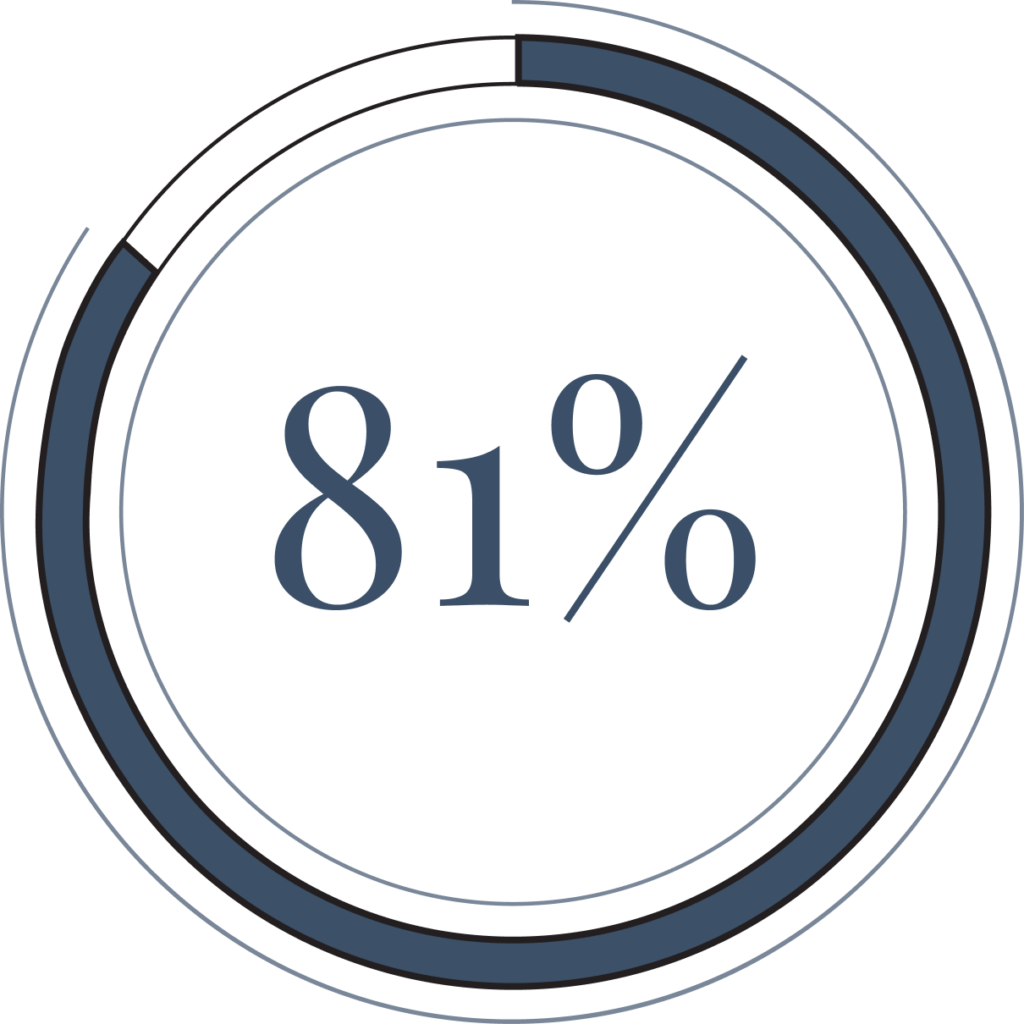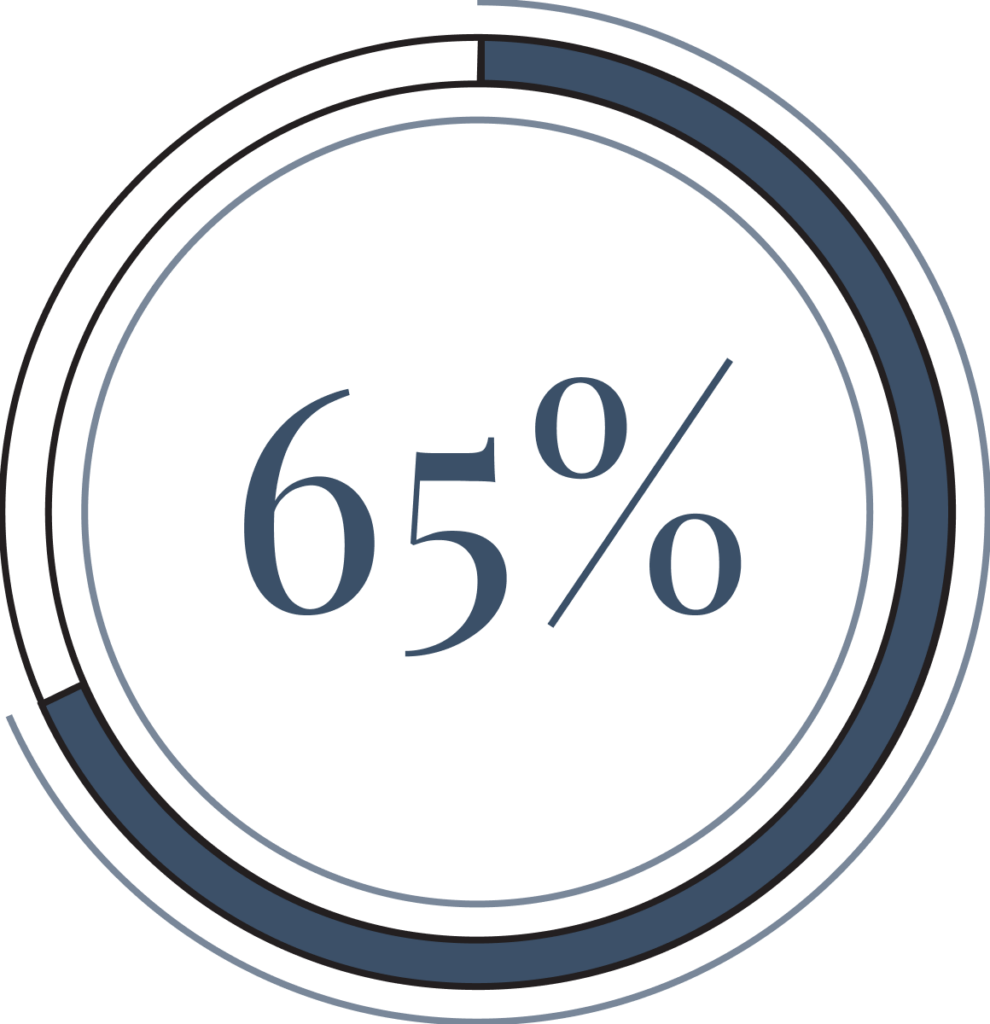What is Transcranial Magnetic Stimulation?
Transcranial Magnetic Stimulation (TMS) is a chemical-free, non-invasive magnetic pulse treatment that stimulates mood regulation.
TMS therapy uses a specialized helmet equipped with electro-magnetic coil configurations that emit pulses that activate neurons in specific regions of the brain known to regulate mood.
Why Choose TMS?
Depression affects roughly 1 in 10 adults and 30% of all depression cases are resistant to treatments like medication and psychotherapy.1,2
TMS offers a powerful alternative to conventional treatments.
Research suggests approximately 50% to 60% of people with treatment-resistant depression experience a clinically meaningful response to TMS treatment.3
TMS is also an effective solution if you don’t want to risk side effects common to prescription medications.
Clinical Results of Deep TMS

81% of patients responded to treatment4
65% of patients achieved remission4
Clinical Results of Deep TMS

81% of patients responded to treatment.4

65% of patients achieved remission.4
TMS Protocols
Standard TMS
36 sessions in 8-10 weeks
Treatment schedule:
- Delivered once per day over the course of 8-10 weeks (36 total), depending on your specific diagnosis protocol
- Each treatment duration ranges from 8-22 minutes
- Standard TMS is approved and covered by most insurances
Accelerated TMS
50 sessions over 5 consecutive days
Treatment schedule:
- 10 treatments per day, each spaced out by 50 minutes.
- Each treatment duration ranges from 8-22 minutes
- Accelerated TMS is not covered by insurance
What TMS Treats
FDA-Cleared Treatments
Depression
TMS uses magnetic pulses to stimulate neurons in regions of the brain associated with depression.
OCD
TMS is an effective solution for diminishing the obsessive thoughts and compulsive behaviors that contribute to Obsessive-Compulsive Disorder (OCD).
Smoking Addiction
TMS uses magnetic pulses to stimulate neurons in specific regions of the brain, reducing tobacco cravings and increasing cognitive control.
Off-Label Treatments
- Bipolar Depression
- Schizophrenia
- Parkinson’s Disease
- Anxiety
- Neuropathic Pain
- Neurocognitive Disorder (Dementia)
- Tinnitus
- Post-Stroke Motor Dysfunction
- PTSD
- Migraines
- Multiple Sclerosis Fatigue Syndrome
- Alcohol Use Disorder
- Cocaine Use Disorder
- Tension Headaches
- Memory Enhancement
- Post-Stroke Aphasia
- Goodwin, Renee, et al. Trends in U.S. Depression Prevalence From 2015 to 2020: The Widening Treatment Gap, 19 Sept. 2022, doi.org/10.1016/j.amepre.2022.05.014.
- Zhdanava M, Pilon D, Ghelerter I, Chow W, Joshi K, Lefebvre P, Sheehan JJ. The Prevalence and National Burden of Treatment-Resistant Depression and Major Depressive Disorder in the United States. J Clin Psychiatry. 2021 Mar 16;82(2):20m13699. doi: 10.4088/JCP.20m13699. PMID: 33989464
- Adam P. Stern, MD. “Transcranial Magnetic Stimulation (TMS): Hope for Stubborn Depression.” Harvard Health, 27 Oct. 2020, www.health.harvard.edu/blog/transcranial-magnetic-stimulation-for-depression-2018022313335.
- Mitchell, Ross. “Deep TMS H1 Coil Treatment for Depression: Results from a Large Post Marketing Data Analysis.” BrainsWay, 25 Apr. 2023, www.brainsway.com/knowledge-center/deep-tms-h1-coil-treatment-for-depression-results-from-a-large-post-marketing-data-analysis/.